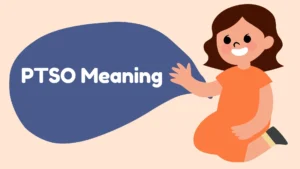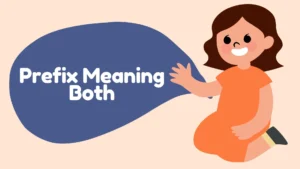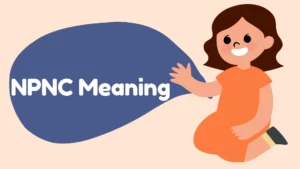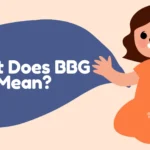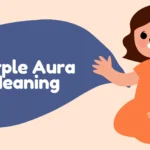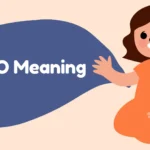In the fast-evolving world of digital communication, abbreviations and slang terms are constantly emerging. One such term that has gained traction—especially among younger demographics—is “ion.” While traditionally known as a scientific term related to chemistry, “ion” in the context of texting and social media has taken on an entirely different meaning. If you’ve ever come across this term in a message or a tweet and found yourself confused, you’re not alone.
Understanding internet slang like “ion” is crucial not just for keeping up with conversations but also for preventing misunderstandings. Whether you’re a parent trying to decode your child’s messages, a teacher engaging with students online, or simply a curious netizen, knowing what “ion” means in text can help you stay in the loop. This article will break down the term’s meaning, origins, usage, and more, giving you a complete picture of this trendy linguistic phenomenon.
What Does “Ion” Mean in Text?
In texting and social media, “ion” is not usually referencing the scientific term involving charged atoms. Instead, it is a phonetic abbreviation or slang that stands for “I don’t.” It’s a condensed version of how some people pronounce “I don’t” in casual speech—often sounding like “ion” (eye-own).
For example:
- “Ion like that movie” = “I don’t like that movie”
- “Ion know what you’re talking about” = “I don’t know what you’re talking about”
This usage is especially popular among younger users and is often seen in text messages, tweets, captions, and memes. It’s casual and expressive, often used to add a layer of informality or personality to a message.
The key here is that the meaning of “ion” is heavily dependent on context. If someone is discussing chemistry, they likely mean the scientific term. But if they’re texting casually or posting on social media, “ion” most likely means “I don’t.”
Other Ways to Say “Ion”
While “ion” is a popular shorthand for “I don’t,” there are several other informal and phonetic expressions that people use in digital communication to express the same idea:
- “I dnt” – A more literal abbreviation
- “Ion’t” – A stylized spelling, closer to how it sounds when spoken
- “Idk” – Often used with “ion” as in “Ion even know” meaning “I don’t even know”
- “I ain’t” – Used similarly in dialects or casual speech
- “Don’t” – Simply shortening the full form
For example:
- “Ion care” = “I don’t care”
- “I dnt wanna go” = “I don’t want to go”
- “Ion’t even like that song” = “I don’t even like that song”
These variations reflect regional speech patterns and levels of formality. Most are rooted in spoken English and later adopted into text-based forms, showcasing the flexibility of language in the digital age.
Definitions & Meaning
To clarify, there are two primary meanings of the term “ion”, depending on context:
1. Scientific Meaning
- An ion is an atom or molecule with a net electrical charge due to the loss or gain of one or more electrons.
- Common in chemistry, physics, and biology.
2. Texting/Slang Meaning
- In informal digital communication, “ion” is used as a phonetic abbreviation of “I don’t.”
- It mimics the sound of “I don’t” when spoken quickly or in certain dialects.
Examples of texting usage:
- “Ion feel like going out tonight” = “I don’t feel like going out tonight”
- “Ion think that’s a good idea” = “I don’t think that’s a good idea”
While the scientific definition is standardized, the slang usage is flexible and creative, shaped by user trends and cultural influences.
Origins & History
The slang usage of “ion” traces back to spoken vernacular, particularly among African American Vernacular English (AAVE) speakers. In fast, casual speech, “I don’t” often sounds like “ion,” especially in phrases like “I don’t know” (ion know). Over time, this verbal shorthand made its way into written form, particularly in texting, memes, and social media captions.
The term began gaining prominence in the early 2010s, coinciding with the rise of Twitter, Instagram, and texting culture. Its usage became more widespread as influencers and meme creators incorporated “ion” into their content.
Platforms like TikTok and Twitter played a pivotal role in popularizing “ion” as more people shared and replicated the style. As with many internet slang terms, what began as regional or community-specific language eventually became mainstream among Gen Z and even some millennials.
Example
Here are a few common examples that show how “ion” is used in real-world digital conversations:
- Text Message: Friend: “Are you coming to the party tonight?” You: “Ion feel like going out tbh.”
- Tweet: “Ion trust people who don’t like music.”
- Instagram Caption: Photo of empty fridge Caption: “Ion know what I’m supposed to eat now 😩”
In each case, “ion” serves to reflect a casual, conversational tone, making the message feel more relatable or humorous.
Usage in Different Contexts
Social Media
On platforms like Twitter, TikTok, and Instagram, “ion” is commonly used to add personality or attitude to posts. It often appears in memes or as part of a relatable statement:
- “Ion even know what’s going on anymore.”
- “Ion need that kinda energy in my life 💅”
Text Messaging
In one-on-one conversations, especially among friends or peers, “ion” is a shorthand that saves time and reflects informal speech:
- “Ion wanna go to class today 😩”
Pop Culture
Influencers, musicians, and celebrities sometimes use “ion” to connect with their audience or to appear more down-to-earth. Song lyrics and interviews may also feature this kind of slang.
Professional Settings
You’re unlikely to see “ion” used in a professional or academic context unless it’s being referenced as part of a study or discussion on digital communication or slang. In formal writing, “I don’t” or “do not” would always be preferred.
Common Misunderstandings & Clarifications
1. Mistaking It for the Scientific Term
- People unfamiliar with the slang may assume it references chemistry.
- Clarification: Always check the context—if it’s casual or social, it’s probably slang.
2. Believing It’s a Typo
- Some may think the user misspelled “I’m” or “in.”
- Clarification: While it looks like a typo, “ion” is an intentional abbreviation.
3. Misinterpreting Tone
- Some might think “ion” comes off as lazy or dismissive.
- Clarification: It’s simply informal and not meant to be disrespectful—just relaxed.
Understanding these common pitfalls helps avoid miscommunication, especially across age groups or between formal and informal settings.
Alternatives & Synonyms
If you’re looking to switch things up or avoid confusion, here are some alternatives and synonyms to “ion”:
- “I don’t” – The standard, full form.
- “I do not” – Formal and clear.
- “I ain’t” – Informal, with a slightly different regional tone.
- “Nah” / “Nope” – For short rejections or denials.
- “Not really” – For more polite disagreement or disinterest.
Example Comparisons:
- “Ion wanna go” = “I don’t want to go” / “I ain’t going” / “Not really feeling it”
Choosing the right version depends on your audience and how formal or casual you want to be.
Frequently Asked Questions (FAQ)
1. What does “ion” mean in texting?
In texting, “ion” is a slang term meaning “I don’t.”
2. Is “ion” a typo?
No, it’s a phonetic abbreviation of how “I don’t” sounds when spoken quickly.
3. Is “ion” appropriate for formal communication?
No, it’s best reserved for casual, informal conversations.
4. Where did the slang “ion” originate?
It comes from African American Vernacular English and gained popularity through social media.
5. Can “ion” be used in professional emails?
No. Stick to “I don’t” or “do not” in professional writing.
6. Is “ion” the same as the scientific term?
No. In slang, it means “I don’t”; in science, it refers to charged particles.
7. Why do people use “ion” instead of “I don’t”?
It’s quicker, trendier, and reflects casual speech patterns.
Conclusion
The term “ion” in texting is a great example of how language continues to evolve in the digital age. While it may confuse those unfamiliar with internet slang, understanding it is relatively simple once you know it stands for “I don’t.” Rooted in speech patterns and shaped by social media culture, “ion” reflects how informal communication can be both efficient and expressive.
Whether you choose to use “ion” yourself or simply want to understand what others mean when they say it, being aware of its meaning, context, and variations ensures you stay current with modern digital language trends. Just remember: in a chemistry lab, it’s still a charged particle—but in a group chat, it’s probably just someone saying they’re not interested.




